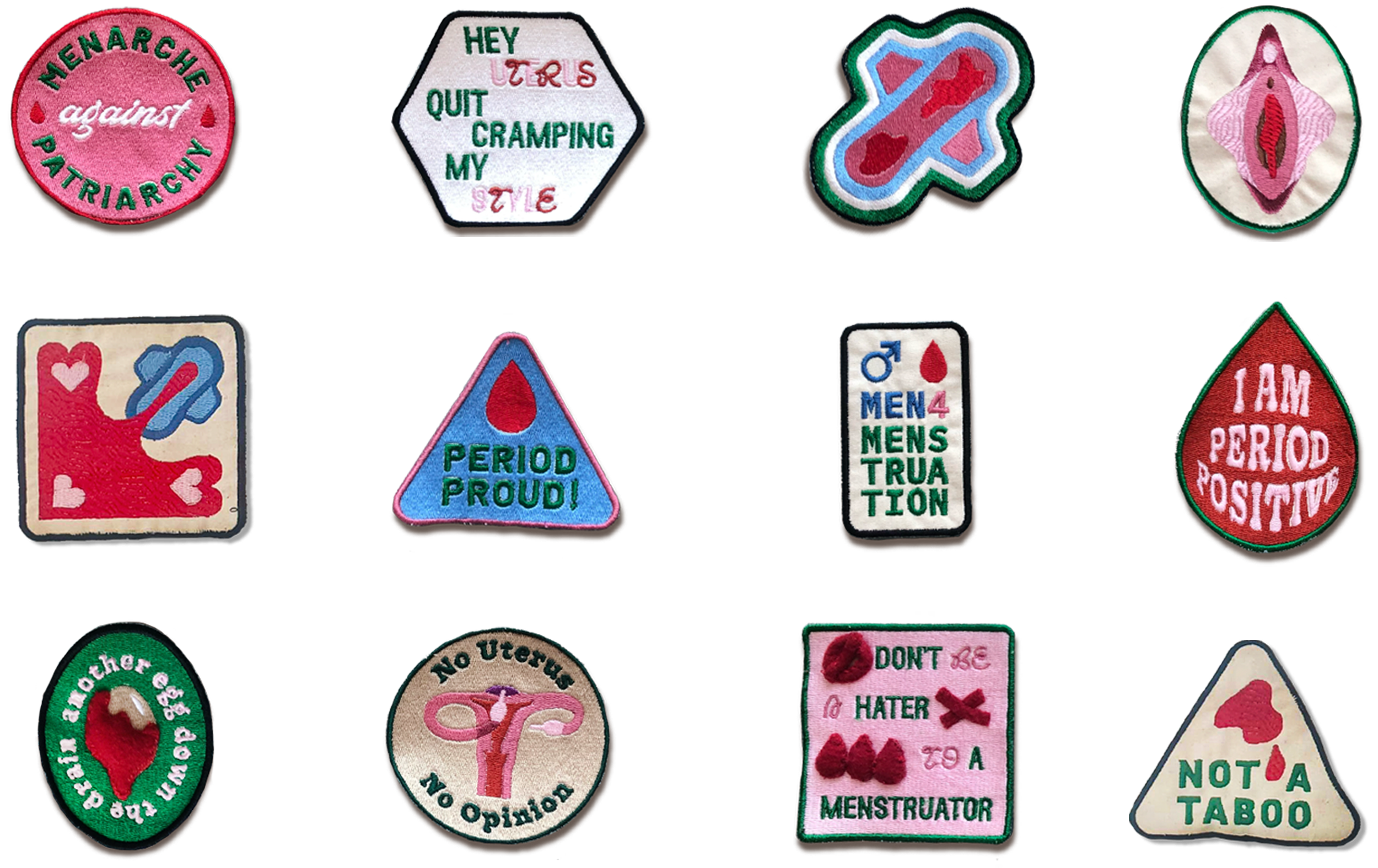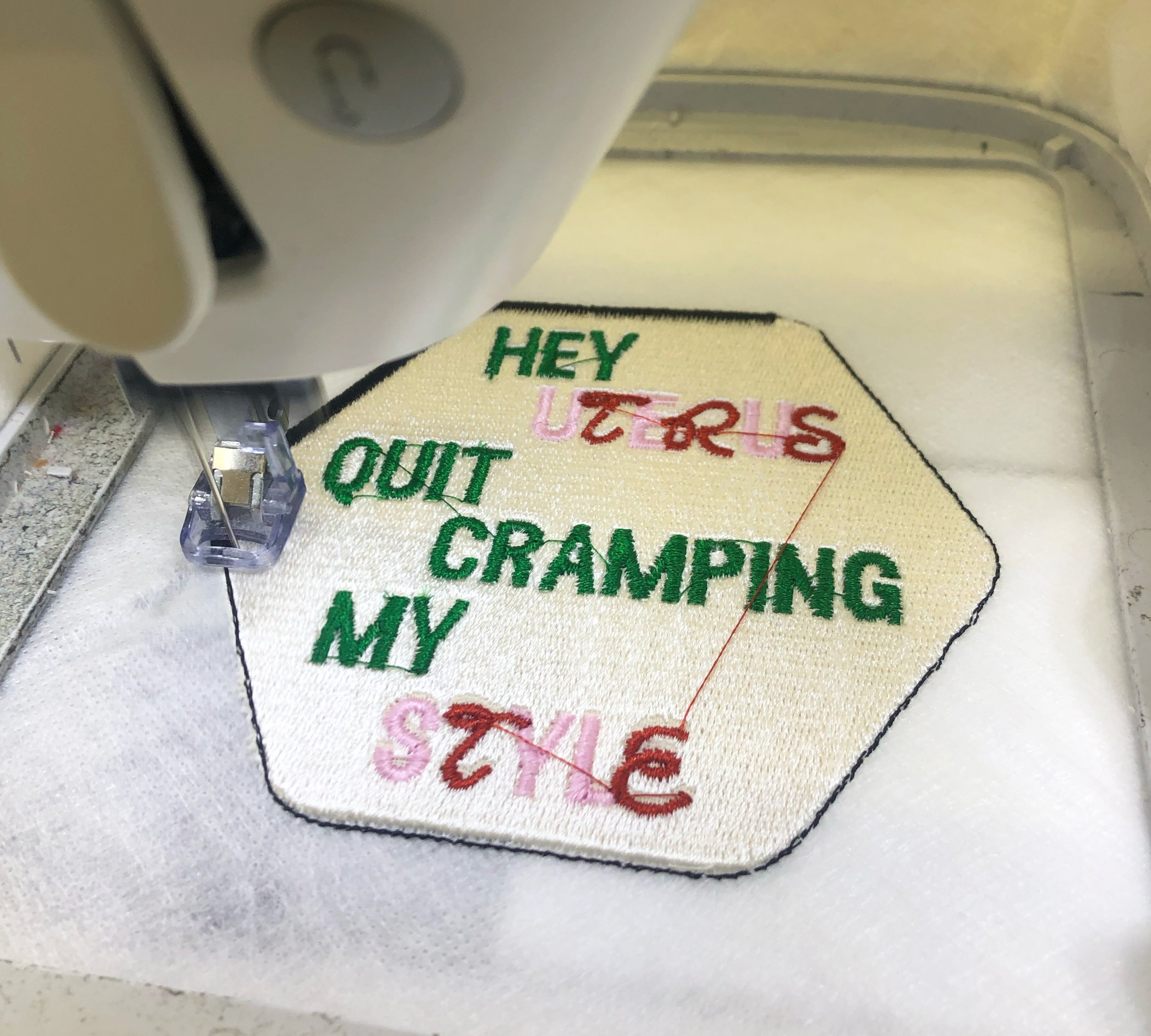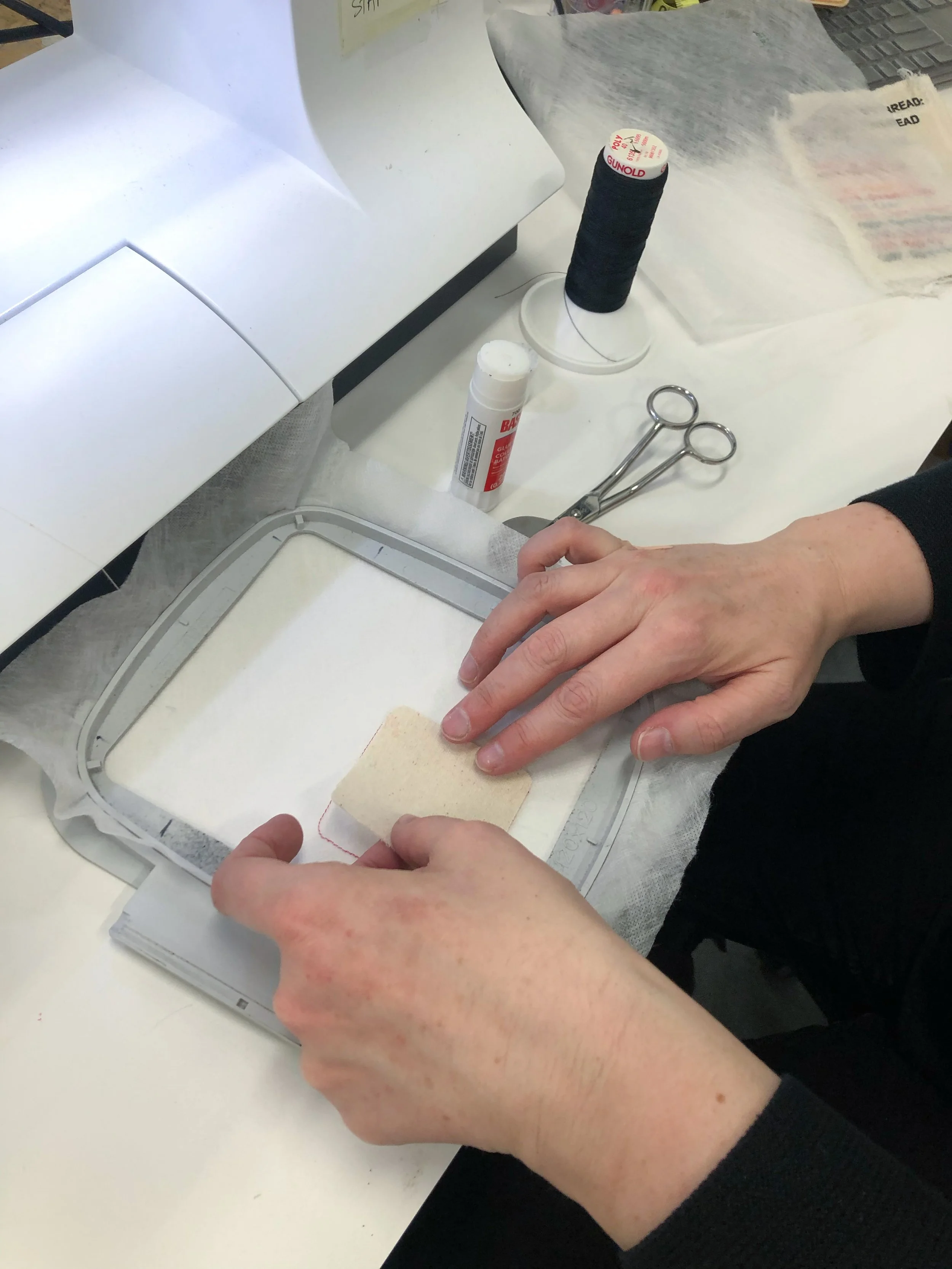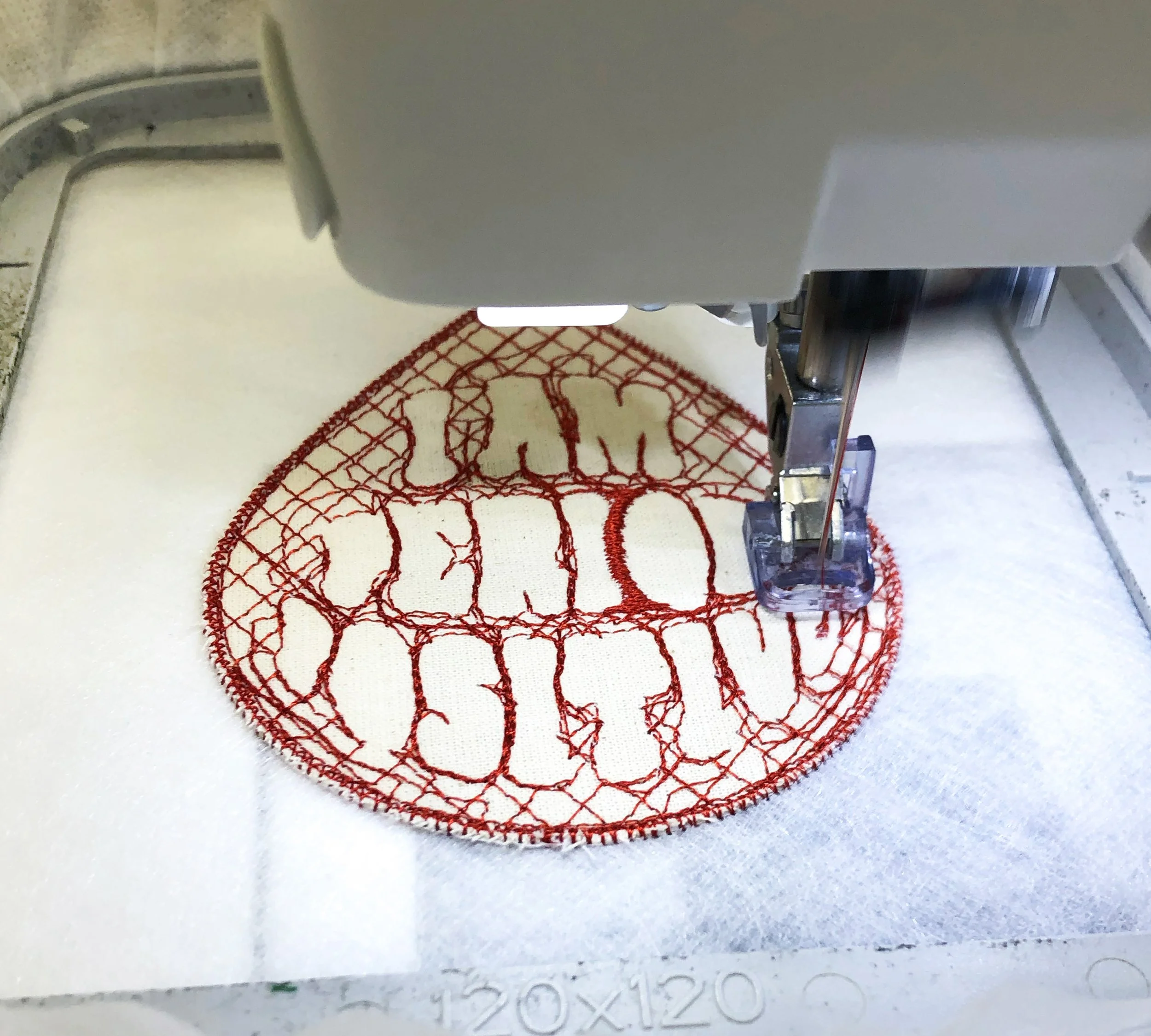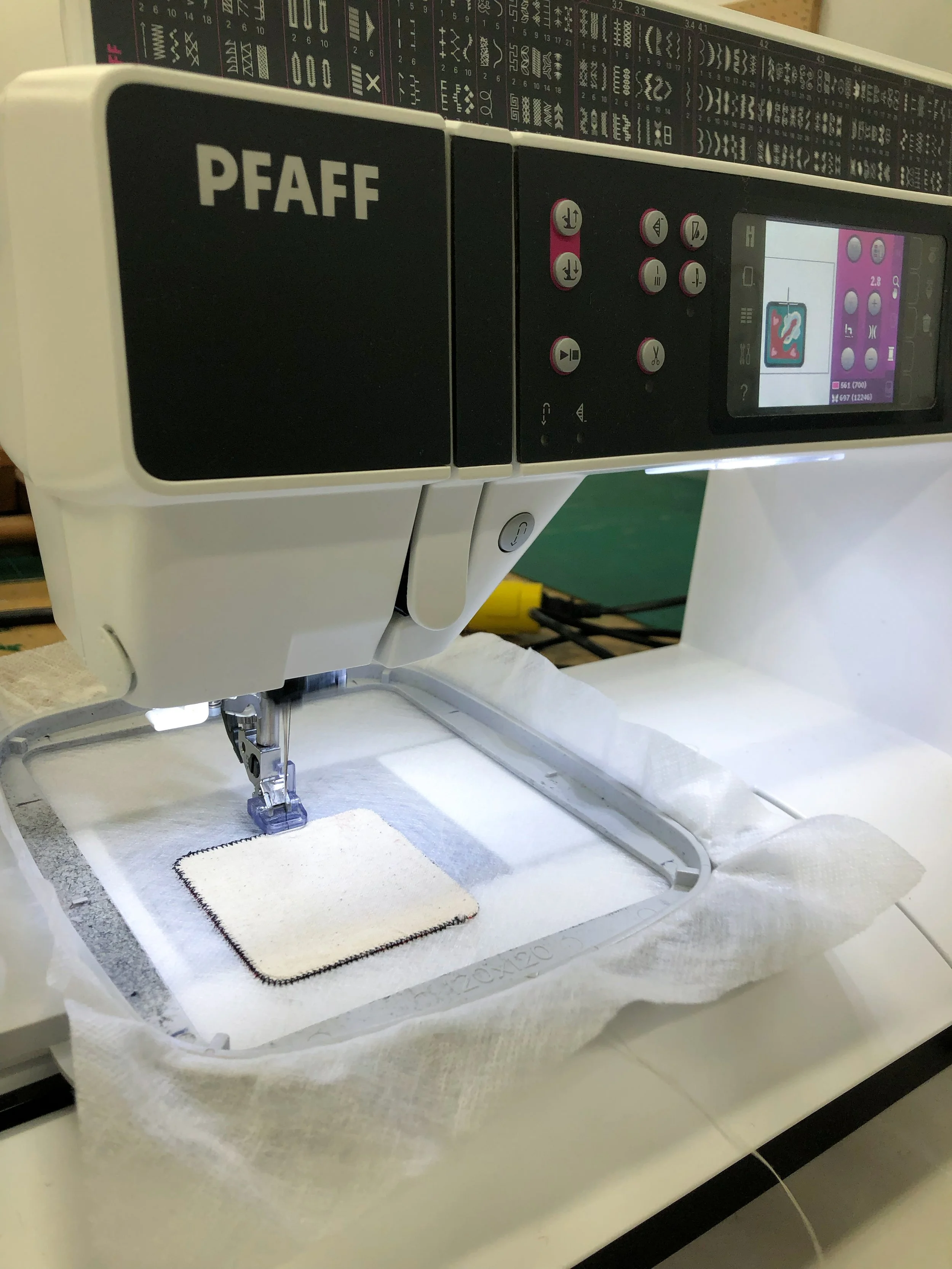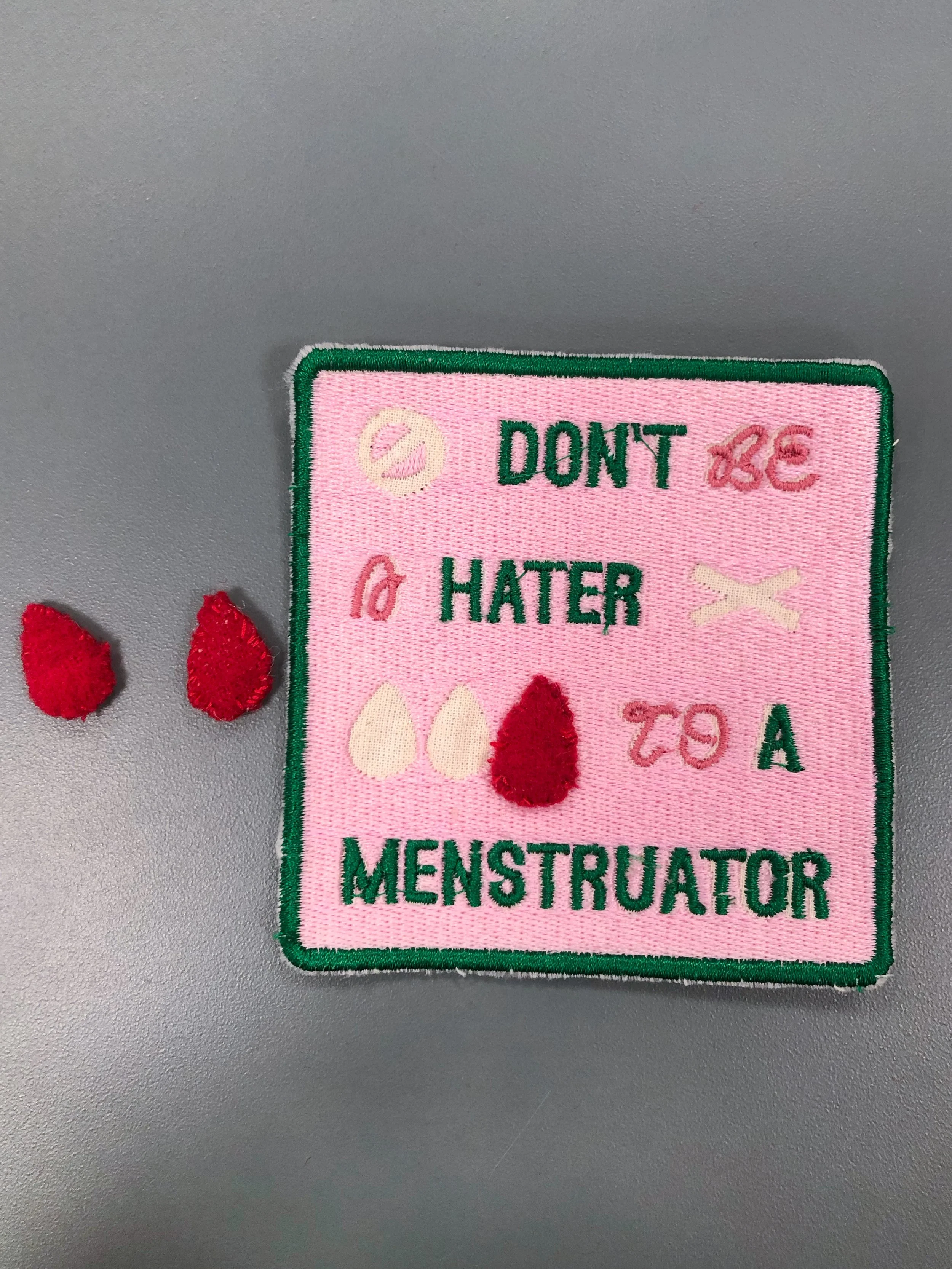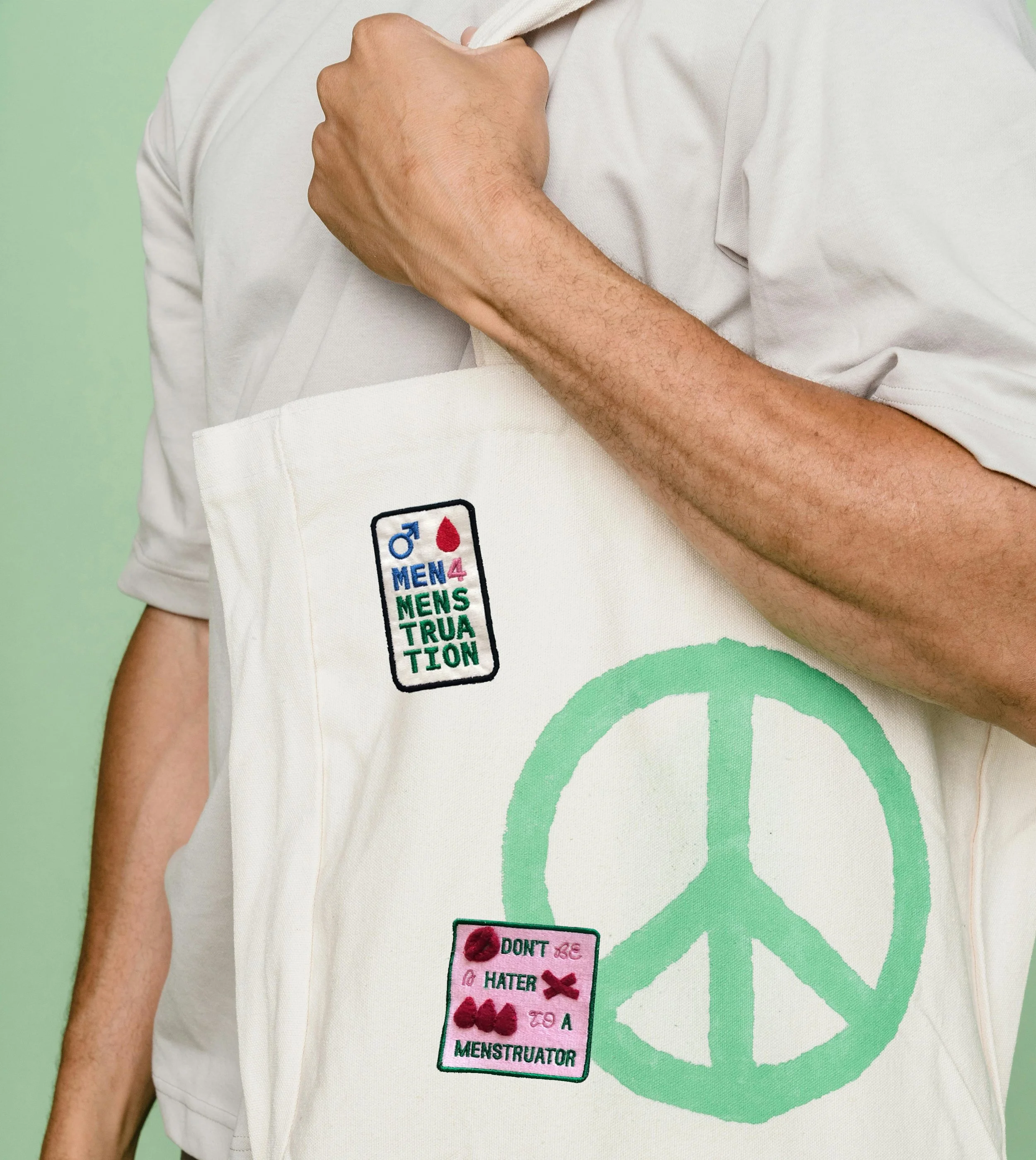GRAPHIC COMMUNICATION DESIGN / ARTiFACT MAKINGPatches Against Patriarchy
In 1973, the U.S. Supreme Court rendered a pivotal decision safeguarding the right to abortion under the U.S. Constitution. Known as Roe v. Wade, this decision marked a historic moment in U.S. history concerning women’s reproductive rights. Almost five decades later, in June 2022, this landmark decision faced a shocking overturn. Shortly thereafter, commencing my graduate design studies in Canada, I found discussions on Roe v. Wade to be resonant across various news portals, social media platforms, and online forums. Millions of women globally expressed disdain, anger, and fear concerning the erosion of their reproductive rights by patriarchal forces. As a designer and advocate for women’s rights, I elected to contribute to these crucial socio-political conversations using my design skills. Grounding a design response in the post-Roe v. Wade landscape and connecting it to my research on menstrual advocacy, I conceived Patches Against Patriarchy as a creative expression in a space of political inquiry.
Digital patches designed in Adobe Illustrator software.
Patches Against Patriarchy is a collection of digitally embroidered patches that facilitate commentary on the societal scrutiny of biological processes such as menstruation and the political policing of women’s reproductive rights. Drawing inspiration from the legacy of feminist political activism, the patches feature slogans that incorporate syntax from contemporary pop culture and the visual language of internet memes. Employing a playfully provocative tone of voice rooted in humour, these patches initiate discourse on crucial issues of women’s bodily rights.
Originally imagined as digital badges, these patches materialised as machine-embroidered artefacts, translating digital visuals into tangible forms. The choice of the embroidered patch format was informed by the historical emergence of patches as symbols of protest towards the Vietnam War by the ‘flower-power’ counterculture of 1960s America. Later, with the gradual emergence of the ‘punk’ subculture in the 1970s, these patches transformed from representations of peace and love to anarchist symbols of spikes and razor blades, embodying the spirit of resistance to the establishment. For decades, embroidered patches have been used to demonstrate individual affiliation with a social justice group or political cause. The popularity of patches endures even today, with their usage extending to urban ‘hip-hop’ culture and fashion.
All 12 patches were fabricated in the PFAFF Creative 3.0 Sew/Embroidery Machine using the Embird Software at the Emily Carr University Soft Shop with the support of technician, Jen Hiebert. More information about digital embroidery can be found here - https://www.youtube.com/watch?v=mKNbj3NcE_o
To get my hands more involved in the making, I decided to hand-sew some elements onto the digitally embroidered patches. I used scrap fabrics and textile foam stuffing to make three-dimensional pieces that I then sewed onto the rest of the patches. This, I thought, added another layer of tactility and textural quality to them.
These patches serve as versatile forms of social activism, applicable to clothing items and accessories, becoming impactful communication and community-building tools for everyday engagement with socio-political causes.
As part of ongoing advocacy, I make the 12 patch templates (.ai & .eps files) available for free download to encourage the production and distribution of additional copies and build a wider network of solidarity for women’s reproductive rights.
Patches Against Patriarchy © 2024 by Priyanka Abraham Poulose is licensed under CC BY-NC-SA 4.0.
To view a copy of this license, visit http://creativecommons.org/licenses/by-nc-sa/4.0/


